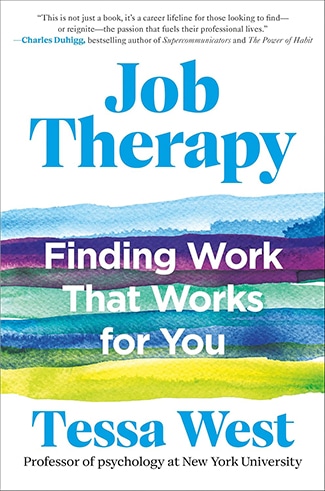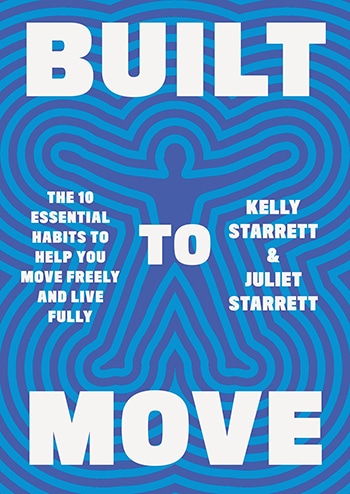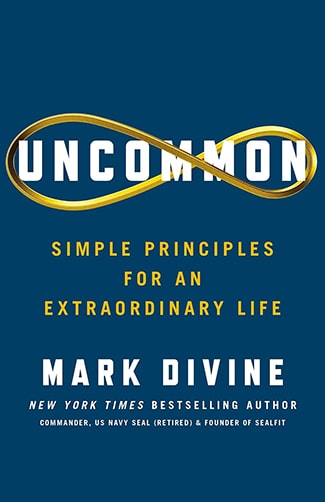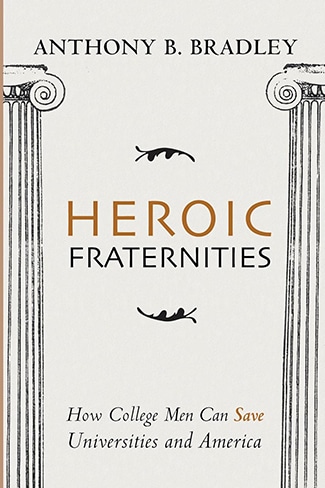Podcast Summary
Timeless storytelling that captivates all ages.: The Twilight Zone entertains and teaches valuable life lessons through its captivating narratives, making it a beloved and enduring show for generations.
The Twilight Zone's enduring appeal lies in its ability to offer timeless and cross-generational storytelling. The show's half-hour episodes make it easily digestible for viewers of all ages, allowing them to immerse themselves in the captivating narratives. Mark Dawidziak, the author of "Everything I Need to Know, I Learned in the Twilight Zone," discovered the show at a young age and was initially drawn to its spookiness. However, as he grew older, he realized that each episode contained moral lessons and metaphoric elements. The Twilight Zone's ability to both entertain and teach valuable life lessons is what sets it apart and ensures its continued popularity among various generations.
The Twilight Zone: Timeless storytelling and thought-provoking themes.: The Twilight Zone captivates viewers of all ages by offering entertainment and life lessons, with exceptional talent behind its success. It remains relevant despite its age and continues to address important social issues.
The Twilight Zone has a timeless appeal due to its combination of captivating storytelling and thought-provoking themes. As a child, the show's eerie atmosphere provided a daily thrill, but as one grows older, they begin to realize that there is something deeper behind the creepiness. The Twilight Zone hooks viewers of all ages because it offers both entertainment and life lessons. Additionally, the show's success can be attributed to the exceptional talent involved, from the talented writers like Rod Serling, Charles Beaumont, and Richard Matheson to the skilled actors who brought their words to life. Despite being a black and white show from 1959, the Twilight Zone continues to captivate and provoke discussion, much like timeless fairy tales. The show's creator, Rod Serling, took a risk by using the Twilight Zone as a platform to tackle important social issues that were becoming increasingly difficult to address through traditional television due to limitations and censorship.
The Twilight Zone: A Thought-Provoking Moral Journey: The subtlety and thought-provoking nature of The Twilight Zone's stories allow viewers to reflect on and ponder the underlying moral messages for a long time.
Rod Serling, the creator of The Twilight Zone, was a moralist in disguise. Like Mark Twain, Serling used fantasy to hide the message behind his stories, much like Twain used humor to convey moral lessons. Each episode of The Twilight Zone can be seen as a parable, a form of storytelling that teaches lessons while entertaining the audience. Serling's approach was unique in that he didn't overtly preach or teach, but instead left the moral unsaid, allowing the audience to ponder and reflect on the message. Unlike other TV shows or movies that often force their moral messages, The Twilight Zone's subtlety and thought-provoking nature left a lasting impact on viewers. The power of Serling's storytelling lies in its ability to disturb, disorient, and make viewers stew on the episode's themes for days, weeks, or even years after watching it.
Appreciating the Past and Embracing the Present: We must learn from and appreciate our past, but we should not dwell on it. Instead, we should focus on creating new memories and experiences in our present lives.
We should appreciate our past, but we cannot live in it. The episode "Walking Distance" from The Twilight Zone illustrates the nostalgia and pull towards the past that many of us experience. Martin Sloan, the protagonist, goes back to his childhood town and tries to recreate it, only to realize that he cannot live in the past. His father reminds him that he must create new good memories in his present life. This exchange emphasizes the importance of living in the moment and appreciating our current circumstances. While we can cherish and learn from our past experiences, we must not get stuck in them. We should embrace the present and strive to make new memories and experiences.
Escaping the Present: Longing for an Idyllic Past in The Twilight Zone's "A Stop at Willoughby: Society's treatment of individuals who have given their all and the importance of supporting the vulnerable prompts reflection on our own desires for a simpler, more fulfilling existence.
The episode "A Stop at Willoughby" from The Twilight Zone explores the theme of longing for an idyllic past and escaping the pressures of the present. The main character, Martin, feels overwhelmed by the demands of his successful but exhausting life, and he yearns for a simpler, more fulfilling existence. This episode raises questions about the treatment of individuals who have given their all and whether society values and supports them as they age or lose their capabilities. It also touches on how we handle the most vulnerable members of society, such as aging parents and children. Ultimately, the episode prompts us to reflect on our own desires to escape and find a place where we can live life to the fullest, just like Willoughby.
The ironic reality of fairness in life: Life isn't always fair, and we must come to terms with the fact that fairness is not guaranteed.
Life isn't always fair. In the iconic Twilight Zone episode "Time Enough at Last," the main character, who loves to read, is the last man on Earth after a nuclear exchange. He stumbles upon a library and sees it as his salvation, with endless books to read. However, just as he is about to indulge in this newfound luxury, his reading glasses slip from his face and shatter. He exclaims, "Thats not fair. There was time, at last there was time enough at last." This ending is considered one of the most powerful and ironic in the Twilight Zone. Although we may strive for fairness in life, the reality is that it doesn't always work that way. As Mark Dawidziak's mother wisely said, "Nobody said life was fair."
The Perils of Having It All: True happiness comes from the journey and challenges life presents, not from instant gratification or unlimited choices.
Sometimes having everything we desire can actually be hell. In the episode "A Nice Place to Visit," the main character, a criminal, is given everything he wants by an angel named Pip. He has a luxurious apartment, women at his beck and call, and constantly wins at gambling. However, he becomes bored and realizes that this is his personal hell. This story teaches us that true satisfaction and fulfillment come from the contrast of experiences and the journey of life. Without challenges and opposition, life becomes dull and meaningless. It also serves as a reminder that instant gratification and being surrounded by unlimited choices may not bring lasting happiness.
Embracing the Contrasts of Life: Lessons from The Twilight Zone: Appreciate the value of both happiness and misery, be cautious of appearances, and embrace diverse interpretations in order to avoid misjudgment.
There is value in experiencing both happiness and misery in order to understand and appreciate each one. The absence of friction in life can lead to a sense of existential flatness, highlighting the need for contrast. The Twilight Zone exemplifies this idea by blending light and dark, showcasing that darkness is always lurking, even in seemingly light situations. The show teaches us to be wary of anything that appears too good to be true, as scammers and deceptive individuals are becoming increasingly sophisticated. Multiple interpretations of stories, like those in The Twilight Zone, can coexist and depend on individual perspectives and experiences. It is important to remember that judging something solely by its external appearance can lead to misinterpretation.
Beware of Deceptive Promises and Superficial Appearences: Grand promises should be met with skepticism and the true cost and consequences of opportunities should be evaluated before making decisions. Genuine happiness does not come from material possessions and success.
Things that seem too good to be true often are. In the story of the aliens offering peace, prosperity, and an end to hunger, it turns out they were actually planning to eat humans. This reminds us to be skeptical of grand promises and to question motives behind seemingly perfect scenarios. Similarly, in the story of Mr. Bevis, the angel offers him everything he wants, but it only leads to his unhappiness and a loss of what truly made him happy. It teaches us that material possessions and success do not necessarily equate to genuine happiness. These stories caution us to look beyond superficial appearances and evaluate the true cost and consequences of seemingly amazing opportunities.
Embracing Individuality and Finding Joy in the Twilight Zone: Embrace your true self, stay connected to your inner child, and live authentically to find rewards and maintain a sense of wonder throughout life.
It is important to embrace your individuality and not conform to societal expectations. Mark Dawidziak expresses his personal connection to the Twilight Zone episode "Mr. Bevis," as he sees himself as someone who has always been slightly out of step with the norm. He believes there are rewards for living life authentically and not following a prescribed path. Additionally, the conversation touches on the episode "Kick the Can," which explores the idea of recapturing the magic and playfulness of childhood. It emphasizes the importance of staying in touch with your inner child and maintaining a sense of wonder throughout life. Ultimately, both episodes highlight the value of embracing your true self and not losing touch with the joy and curiosity of youth.
The Scariest Twilight Zone Episodes: Subjectivity and Fear: What scares us reveals more about ourselves than the actual content of the episodes.
The scariest Twilight Zone episodes are subjective and can vary based on individual responses. What scares you may not scare someone else, and that's what makes it like a Rorschach test. However, some episodes that are often considered among the scariest are "22" and "Ring-a-Ding Girl". "22" tells the story of a woman who keeps dreaming of going to the morgue after following a creepy nurse and narrowly escapes death when her flight bursts into flames. "Ring-a-Ding Girl" revolves around an actress who sees a pleading message in a ring and returns to her hometown to perform, unknowingly saving lives when a plane crashes into the location of a picnic. Other notable spooky episodes mentioned include "The Living Doll" and "The Dummy" where inanimate objects come to life and "It's a Good Life" where a child has the ability to think people dead. Ultimately, the scariest episodes reveal more about the individual's fears than the show itself.
Timeless themes and thought-provoking storytelling in The Twilight Zone.: The Twilight Zone serves as a warning against fear, division, and censorship, reminding us to stand up for what is right in our own society.
Episodes of The Twilight Zone can have a resounding impact even years after they were created. The episode "The Monsters Are Due on Maple Street" explores the dangers of fear and distrust within a community. It serves as a warning against dividing ourselves and succumbing to paranoia, as seen during the McCarthy era. This message is especially relevant in today's divided society. The episode "The Obsolete Man" further emphasizes the importance of standing up for what is right. It challenges the idea of state control and censorship, highlighting the bravery of the character Romney Wordsworth. Overall, these episodes showcase the timeless themes and thought-provoking storytelling that make The Twilight Zone a must-watch.
The Power of the Individual and the Written Word: Lessons from the Twilight Zone: The Twilight Zone episodes "The Obsolete Man," "Time Enough At Last," and "Monsters Are Due on Maple Street" remind us of the importance of valuing the individual and the knowledge gained from reading, while also highlighting the significance of Rod Serling's legacy in Binghamton.
The worth of the individual and the power of the written word should never be underestimated. In the Twilight Zone episode "The Obsolete Man," the protagonist, Romney Wordsworth, is deemed obsolete because he is a librarian and books are no longer valued. However, the episode highlights the importance of the individual and the knowledge that can be gained from reading. It sends a message that any civilization or society that does not value the individual is obsolete. This episode, along with "Time Enough At Last" and "Monsters Are Due on Maple Street," serves as a reminder of the significance of these themes. Furthermore, fans of the Twilight Zone are encouraged to visit Binghamton, where they can experience the legacy of Rod Serling and witness the symbolic representation of "Walking Distance" at Recreation Park.












